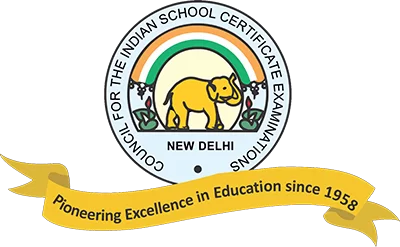Throughout history, the sacrifices of freedom fighters have shaped the course of nations and secured the liberties we enjoy today. These individuals, often at great personal cost, stood against oppression and tyranny, championing the cause of freedom and justice. Remembering and honoring their contributions is not just an act of gratitude but a necessity to keep their legacies alive and inspire future generations. This blog post delves into the lives of some of India’s most revered freedom fighters: Mahatma Gandhi, Bhagat Singh, Netaji Subhas Chandra Bose, Rani Lakshmibai, and Maulana Abul Kalam Azad.
Mahatma Gandhi

Gandhi and His Role in India’s Independence Movement
Mahatma Gandhi, born Mohandas Karamchand Gandhi in 1869, is one of the most iconic figures in India’s struggle for independence. Gandhi’s journey began in South Africa, where he spent over two decades fighting for the civil rights of the Indian community. Upon returning to India in 1915, he became a pivotal leader in the Indian National Congress, advocating for swaraj (self-rule) and leading the nation towards independence through a series of nonviolent movements.
Gandhi’s Philosophy of Nonviolence and Civil Disobedience
Gandhi’s philosophy, rooted in the principles of ahimsa (nonviolence) and satyagraha (truth force), revolutionised the fight for freedom. He believed that nonviolent resistance and civil disobedience were the most powerful weapons against colonial oppression. His teachings emphasized moral integrity, passive resistance, and the power of mass mobilization to bring about social and political change.
Key Events and Campaigns Led by Gandhi
Key events led by Gandhi include the Non-Cooperation Movement (1920-1922), which urged Indians to boycott British goods and institutions; the Salt March (1930), a 240-mile protest against the British salt monopoly; and the Quit India Movement (1942), which called for an end to British rule in India. Each of these campaigns galvanized millions and demonstrated the efficacy of nonviolent resistance.
Bhagat Singh
Bhagat Singh’s Early Life and Radicalization
Bhagat Singh, born in 1907 in Punjab, was deeply influenced by the Jallianwala Bagh massacre and the harsh realities of British rule from a young age. His radicalization began during his college years, where he was exposed to revolutionary ideas and socialist literature. Singh’s commitment to the cause of independence led him to join the Hindustan Socialist Republican Association (HSRA), a revolutionary organization dedicated to overthrowing British rule through armed struggle.
Exploration of His Revolutionary Activities Against British Rule
Singh’s revolutionary activities were marked by bold and dramatic acts aimed at inspiring the masses and challenging British authority. Notably, in 1928, he and his associates assassinated British police officer J.P. Saunders to avenge the death of Lala Lajpat Rai. In 1929, Singh and Batukeshwar Dutt threw non-lethal bombs in the Central Legislative Assembly in Delhi, followed by their arrest, to draw attention to their cause.
Singh’s Ideology and Legacy as a Martyr for Independence
Bhagat Singh’s ideology was a blend of nationalism and socialism. He envisioned an independent India based on egalitarian principles and social justice. His execution in 1931 at the age of 23 transformed him into a martyr, immortalizing his bravery and commitment to the cause of freedom. Singh’s legacy continues to inspire generations of Indians and freedom fighters worldwide.
Netaji Subhas Chandra Bose
Bose and His Leadership in the Indian National Army
Subhas Chandra Bose, known as Netaji, was born in 1897 in Cuttack, Odisha. A brilliant student and a fervent nationalist, Bose became disillusioned with the Congress’s nonviolent approach and sought more direct methods to achieve independence. He led the Indian National Army (INA), which he formed with the help of Imperial Japan during World War II, to fight against British forces.
Bose’s Strategies and Efforts to Liberate India from British Rule
Bose’s strategy involved leveraging international alliances to challenge British rule. He traveled extensively, seeking support from countries that opposed British imperialism. His efforts culminated in the formation of the INA, which fought alongside Japanese forces in campaigns in Burma and India. Although the INA’s military efforts were ultimately unsuccessful, Bose’s defiant leadership and bold strategies were instrumental in galvanizing the Indian independence movement.
Bose’s Controversial Alliance with Axis Powers During World War II
Bose’s alliance with the Axis powers during World War II remains a contentious aspect of his legacy. While some viewed it as a pragmatic move to secure India’s independence, others criticized the alignment with fascist regimes. Despite the controversy, Bose’s commitment to India’s liberation and his ability to inspire and mobilize Indians for the cause of freedom are undeniable.
Rani Lakshmibai
Rani Lakshmibai’s Bravery and Leadership During the Indian Rebellion of 1857
Rani Lakshmibai, born in 1828 in Varanasi, was the queen of the princely state of Jhansi. Known for her extraordinary courage and leadership, she became a key figure in the Indian Rebellion of 1857 against British rule. Her determination and valor have made her a symbol of resistance and female empowerment in Indian history.
Exploration of Her Role in the Fight Against British Colonialism in India
Lakshmibai’s role in the 1857 rebellion was marked by her defiance against the British annexation of Jhansi under the Doctrine of Lapse. Refusing to cede her kingdom, she led her troops with exceptional skill and bravery. Despite being heavily outnumbered, she fought valiantly, even taking to the battlefield herself dressed as a soldier. Her leadership and tactical acumen inspired her forces and struck fear into the hearts of her adversaries.
Discussion of Lakshmibai’s Enduring Legacy as a Symbol of Resistance
Rani Lakshmibai’s death in battle in 1858 only cemented her status as a martyr and a symbol of resistance. Her legacy endures in the hearts of Indians, celebrated in songs, poems, and folklore. She remains an emblem of courage and resilience, inspiring countless women and freedom fighters in their quest for justice and equality.
Maulana Abul Kalam Azad
Brief Biography of Azad and His Contributions to India’s Freedom Struggle
Maulana Abul Kalam Azad, born in 1888 in Mecca, was a prominent freedom fighter, scholar, and leader in India’s struggle for independence. As a leading figure in the Indian National Congress, Azad was a staunch advocate for Hindu-Muslim unity and played a crucial role in the fight against British colonialism. His intellectual contributions and political acumen made him a key architect of modern India.
Azad’s Role in Promoting Hindu-Muslim Unity and Secularism
Azad’s vision for India was rooted in secularism and unity. He believed in an inclusive India where people of all religions could coexist harmoniously. As the President of the Indian National Congress, he worked tirelessly to bridge communal divides and promote a united front against British rule. His efforts were instrumental in fostering a sense of national identity that transcended religious differences.
Discussion of Azad’s Leadership in the Indian National Congress and His Efforts for Independence
Azad’s leadership in the Indian National Congress was marked by his eloquence, strategic thinking, and unwavering commitment to independence. He was a key organizer of the Quit India Movement and worked closely with leaders like Gandhi and Nehru. After independence, he served as India’s first Minister of Education, laying the foundation for the country’s education system and emphasizing the importance of knowledge and learning.
Conclusion
The lives and sacrifices of Mahatma Gandhi, Bhagat Singh, Netaji Subhas Chandra Bose, Rani Lakshmibai, and Maulana Abul Kalam Azad have left an indelible mark on India’s history. Each of these freedom fighters brought unique strengths and strategies to the independence movement, contributing to the eventual liberation of India from British rule.
Remembering and honoring the sacrifices of these freedom fighters is crucial for preserving their legacies and inspiring future generations. Their courage, determination, and unwavering commitment to justice serve as powerful reminders of the cost of freedom and the importance of standing up against oppression.
The stories of these unsung heroes are just a glimpse into the rich tapestry of India’s struggle for independence. Readers are encouraged to delve deeper into their lives and explore the contributions of other freedom fighters who played vital roles in shaping the nation. By understanding their legacies, we can draw inspiration and continue the pursuit of justice and equality in our own lives.
FAQs (Frequently Asked Questions)
Freedom fighters employed a range of tactics, including nonviolent resistance, armed struggle, civil disobedience, and international alliances, to challenge British colonialism and mobilize support for independence.
The contributions of these heroes galvanized mass movements, inspired countless individuals, and pressured the British government to eventually grant India its independence in 1947.
Freedom fighters faced numerous challenges, including imprisonment, torture, exile, and execution. They also contended with internal divisions, limited resources, and the might of the British Empire.
Yes, many freedom fighters, such as Aruna Asaf Ali, Bina Das, and Batukeshwar Dutt, played significant roles in the independence movement but remain less well-known. Their stories deserve greater recognition and appreciation.
The actions and sacrifices of these freedom fighters have inspired future generations to stand up for their rights, fight against injustice, and work towards creating a more equitable and just world. Their legacies continue to resonate globally, influencing movements for freedom and justice worldwide.






